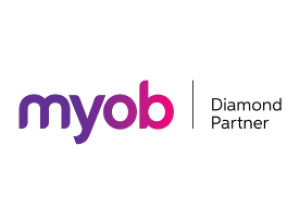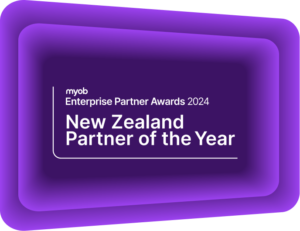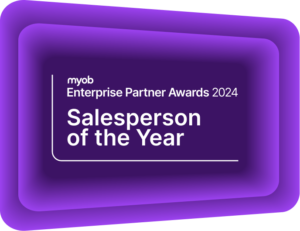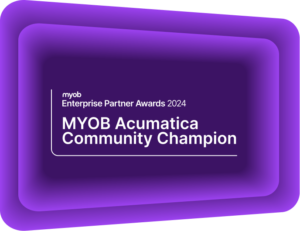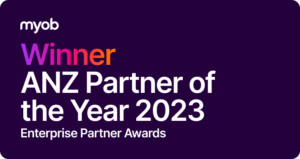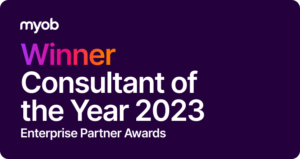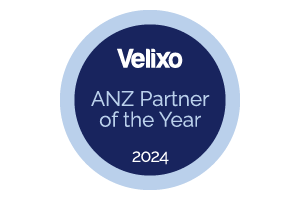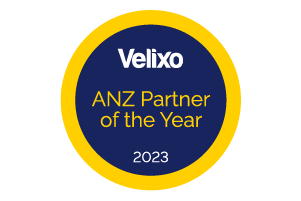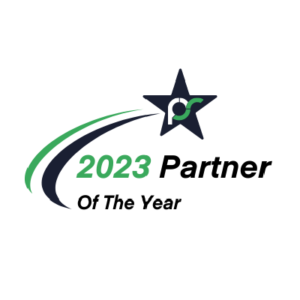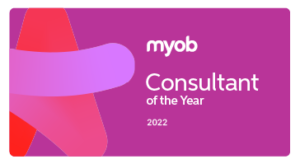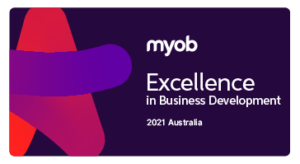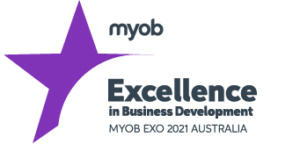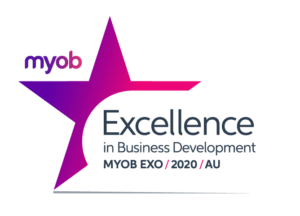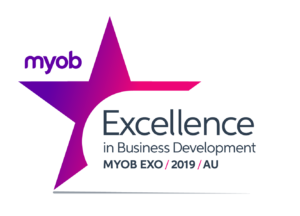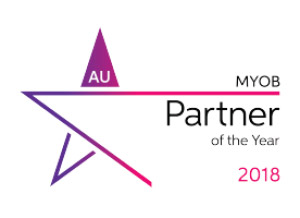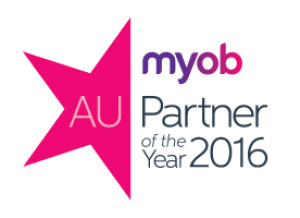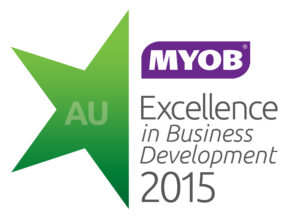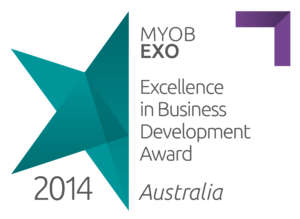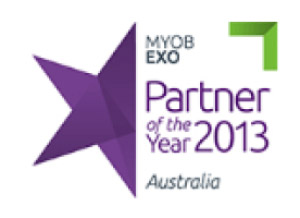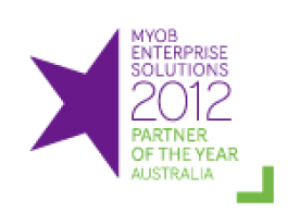When is the best time to implement an ERP solution?
Take control of the process and pick the best time to implement a new ERP systemEditor’s Note: This article was originally published in July 2013 and has been reviewed and updated to provide the most relevant and accurate information. Please enjoy this article and feel free to share your feedback with us.
Your organisation can accomplish a lot over the course of a year. From new clients to end of financial year, board and management reports, major projects, and growth milestones– there is always something keeping you busy. Through all of this, when are you able to find the best time to implement your new cloud-based Enterprise Resource Planning (ERP) system?
Take the opportunity to rethink your workflows.
Off-the-shelf accounting software focuses primarily on accounting functions such as bookkeeping, accounts payable, and accounts receivable. A cloud ERP system, on the other hand, are designed to encompass a broader range of your operations, capturing financial and non-financial data from across your organisation. These systems aim to streamline and connect multiple departments across an organisation by sharing data and automating processes. They do much more in terms of scope than off-the-shelf accounting systems – even regarding finance, accounting, and tax.
Implementing a cloud ERP system is a significant opportunity to review and optimise functions within your organisation, both to take advantage of new automations and functionality, but also for wider business process improvement. While a cloud ERP system may not immediately solve all of your problems, the accompanying improvements from Business Process Improvement (BPI) can change your processes for the better, and set your team up for long-term success.
When should you implement a new cloud ERP system?
The common times through the year to target your implementation go-live are:
- At the start of the new financial year,
- During off-peak or downtime periods for your organisation,
- When you have the appropriate budget finalised, or
- Before your competitors.
Implement a cloud ERP at the start of a new financial year
This is most often perceived as a necessity for new ERP users who feel that going live with a new system at the start of a new financial year is essential. The logic is that you have a clean cut-over to the new system for accounting purposes. This may make sense in theory, but closer analysis reveals that this has many pitfalls.
The end of the financial year may not be the best time for your organisation. This is when people – especially in the finance and payroll departments – tend to be at their absolute busiest. A successful software implementation relies not only on choosing the right software and the right implementation partner but on the contributions from your team. One of the major risk factors in an implementation is a lack of proper resourcing. A new cloud ERP should be customised to fit your unique requirements, who better to communicate that to the implementers than the people using the systems day-to-day. Modern implementation methodologies can deal with the data and opening balances at the start of any period.
Take advantage of business process improvement
Implementation is also a chance for Business Process Improvement (BPI). BPI gives you the opportunity to improve and optimise your processes, procedures, and workflows to get maximum benefit from your new system. It is a key step in improving efficiency. Your team should be heavily involved to workshop and review your old processes and develop new ones.
Implementation projects take a significant amount of time (plan for at least 4 months), and the final stages of user acceptance testing and training are critical. If your organisation is especially busy during the end-of-financial year, then it does not make sense to burden your team with the additional pressure of implementing and learning a new system alongside their usual EOFY obligations.
If you are working with a competent ERP implementer then data (even at a transactional level if absolutely essential) can be migrated from the old system to the new system at any stage during the year. There is no need for a rush to go live at end of financial year.
Implement a cloud ERP during off-peak or downtime periods
In the end, implementing during quiet periods of the year has become the preferred option for our clients. Considering the pitfalls of implementing at the start of the financial year, looking for a quiet time to take advantage of greater resourcing capabilities becomes a wise option.
The caveat here is that your team might have no defined quiet periods through the year, or at least they are few and far between. In this case, look for periods of overall downtime for the entire organisation, not just the finance team. It is very likely that data sources and spreadsheets will need to be cleaned and mapped before being imported into the new system. We strongly advise that you go-live with a clean, reconciled data set – you may not have the chance to clean it again for a long time.
Implement a cloud ERP with the right budget
An MYOB ERP implementation is a significant investment in improving efficiency. Part of getting your MYOB implementation right the first time is having the appropriate budget in place. The cost of rectifying a failed implementation, or the cost of using a system that has not been properly configured to your unique processes, far outweighs the cost of doing it right the first time.
Some clients want to spend their money before the end of the financial year, while others want to budget for the next financial year. Of course, this is a preference, and it boils down to the financial constraints within each organisation. If you decide that the new system is required from a functionality standpoint and that the pricing is within range, then there are certain tools to help overcome short-term budget constraints.
In terms of cash flow, a cloud ERP system is implemented over several months – usually, three to five – and a good implementer will phase the milestone payments over the life of the project to assist with your cash flow management.
The project can also be financed through a third party. Financing options are available which will cover implementation. This will be repayable over three to four years.
The final way to manage your investment is to break the implementation into Phases. You can implement the core ERP system first. Later, as budget allows, deal with subsequent phases such as e-commerce integration, advanced warehouse management, payroll, or other emerging requirements within the organisation.
How to balance onboarding and implementation
It is natural to consider allocating resources towards growing your team as an alternate avenue for an ERP implementation. Many hands can make light work as the saying goes. Every organisation’s situation is unique; however, the more reliable long-term strategy is to invest in BPI and new system implementation rather than simply adding more people.
Onboarding new team members to enter or manipulate data and build reports may ease the pressure in the short-term. However, it fails to address the underlying causes of inefficiency or position your organisation to scale up in the future. If anything, the choice to onboard more staff my add greater short-term pressure as you need to manage the additional burden of your growing team. Investing in BPI during MYOB implementation is the perfect opportunity to evaluate and improve your processes and find long-term efficiency gains. Ensure your capacity for onboarding is used to improve efficiency and grow the organisation rather than prop up inefficient processes.
Implement a cloud ERP system before the competition
Changing market conditions may present the right time to re-strategise your organisation ahead of your competitors. As costs of living and operating costs rise, re-strategising can lead to new avenues of opportunity and position your organisation to take advantage of significant growth. Responding to your customers’ changing needs may lead to or require new business ideas. New ideas generally need new systems to support them. Responding quickly to the external environment will be critical to maintaining your business and getting ahead of the competition.
Having the right systems in place to adapt to changes and maintain efficiency is crucial. Whether your business is facing disruption or in a quieter period, this is a good opportunity to consider your current processes and how a cloud ERP system can guide your business to success. Clever business management solutions are more accessible than ever – with proven returns on investment and efficiency improvements. In what is becoming an increasingly fast-paced business landscape, you cannot afford for your competition to implement these systems and your organisation be left behind.
Implementing a cloud ERP system brings newfound market agility. With real-time data, you can make timely informed decisions without being burdened by generating reports manually. Everyone in your team can be updated with the same information at the same time, regardless of where they access the system. Cloud-based ERP systems naturally breed collaboration and communication, empowering the entire team to improved efficiency.
The Best Time to Implement a new ERP system
It is important to begin the implementation at a time that suits your own business. Be sure to consider all the factors for your team rather than being driven entirely by the implementer. Complex organisations have diverse needs and departmental requirements.
If there are no critical issues that demand an instant start date, the “off-season” may be the perfect time to implement a new ERP system. This allows key staff in your organisation to focus on the implementation of the new system. Therefore, go-live will occur before next year’s peak.
How to calculate return on investment for your MYOB ERP implementation
For larger, more complex organisations, an owner or Board of Directors may wish to consider the Return on Investment (ROI). ERP systems require a significant investment in time and money, and R.O.I.s are notoriously difficult to calculate.
The investment side is easy. You will receive a proposal from your implementation partner. For a mid-sized business, this total may be in the range of $75-100k with ongoing monthly subscription for licences of around $3k. How do you assess the value of the benefits?
Here are some suggestions:
Define what problem will be solved by putting in a cloud ERP system and the benefits gained from the implementation. For example:
- If you need better inventory control from a new system – Better inventory control could mean better analytics and forecasting. This information leads to reducing the amount of capital tied up in inventory. This is a direct cash saving which may pay for the system in its entirety, giving you a return in under 12 months.
- If you need to grow sales – Investing in onboarding and growing your team is a common solution to chase higher sales numbers. However, as your team grows, overall profitability on your latest sales is harder to achieve. By achieving growth via ERP and automation, you can boost sales without the overhead. A clever ERP system can highlight customers with changing buying behaviours and let you redirect your sales teams to focus on these areas. The impact of the uptick in sales could give an ROI within 6-12 months.
- If you need to limit non-productive, mundane work – Anecdotally, teams spend anywhere from 40-60 hours a week in excel creating reports from poor systems. That’s a minimum of $2,000 per week in inefficiencies producing data that a cloud ERP produces with resorting to Excel. The ERP ROI in this situation is roughly 9 months.
When taking a combination of factors into account, many ERP systems have an ROI of less than 12 months. Based on the investment, this may make a very compelling case to go ahead and improve your systems as soon as possible.
The role of a trusted MYOB implementation partner
Whenever you choose to implement a new system, the management of the ERP implementation project is key. Business management platforms like MYOB Acumatica (formerly MYOB Advanced) are complicated and sophisticated. They require in-depth software knowledge, accounting skills, and a comprehensive understanding of your organisation’s unique processes to be configured to completely meet your requirements.
While one may assume that the software vendor is the best equipped to manage your implementation, this is often not the case for larger, more complex organisations.
Kilimanjaro Consulting has the largest and most experienced team of MYOB Acumatica implementation consultants across Australia and New Zealand. We are skilled, low-risk implementers helping businesses overcome their challenges through the use of clever, innovative and proven technology. Our dedicated team takes the time to truly understand your organisation and customise MYOB Acumatica to meet your requirements. The Kilimanjaro Consulting team follows a structured methodology to minimise the risk of your implementation and ensure a successful outcome. We are experienced in implementing MYOB ERP for a range of different organisations.
Kilimanjaro Consulting improves your business efficiency
The Kilimanjaro Consulting team follows a systematic approach to BPI, helping organisations optimise its processes and improve efficiency. BPI is an integral part of any implementation. There must be an overall improvement in your processes; otherwise, your investment in new software will be suboptimal.
Targeted areas for BPI typically include:
- Automating manual processes
- Validate data integrity
- Improved reporting capabilities
- System integrations if applicable, and
- Process efficiency
How to choose the right ERP system for your organisation
Following the advice of a trusted ERP implementation expert is the best way to choose the right solution. The Kilimanjaro Consulting team will take the time to understand your requirements. Combined with our knowledge of the software and what it can achieve, this puts us in the best position to identify areas for efficiency improvement.
We are MYOB specialists, and we only support and implement the MYOB ERP solutions for MYOB Acumatica Business (Acumatica) and MYOB Exo Business. As part of our trusted approach to software guidance, if we do not believe these systems are a good fit for your organisation we will tell you.

Making your way through the ERP Selection process eBook
Download nowManage your entire organisation from one place
The MYOB Acumatica platform lets you manage your entire organisation from a single source of truth for your data. comprising 3 integrated pillars: MYOB Acumatica Business, MYOB Acumatica Payroll, and MYOB Acumatica Workforce Management. It follows the Software as a Service (SaaS) model with subscription-based licences, so you only pay for what you need. You can use one, two or all three pillars as your organisation requires. Initially, implementing MYOB Acumatica Payroll can begin a smooth transition of your company’s processes into a cloud-based environment.
Just as an MYOB Acumatica Business (the core Finance ERP system) implementation can improve efficiency for your team, so can an MYOB Acumatica Payroll implementation. MYOB Acumatica Payroll is equipped to handle larger and more complex organisations’ payroll needs. With Single Touch Payroll and PayDay support and the ability to customise pay groups and pay frequencies, it gives you the flexibility to manage your payroll while updating your data in the core MYOB Acumatica Business. Initially, implementing MYOB Acumatica Payroll can begin a smooth transition of your company’s processes into a cloud-based environment.
The same guidance for timing your implementation also applies to your payroll software. With additional considerations for the needs of your payroll team – especially around the end of financial year – this project can be a strong first step towards the implementation of the all-encompassing MYOB Acumatica solution.
How can clever software solutions improve real businesses?
The Arcadia Corporation successfully transitioned into the cloud and achieved a single, efficient platform from which they now manage Accounts, Inventory Management and CRM. Moving from MYOB Exo to MYOB Acumatica improved functionality and provided end-to-end management of its products. Additionally, integrations with their core business management system enhanced visibility and simplified reporting for the finance and sales teams.
Learn more about the real benefits of moving your organisation into the cloud by reading the case study here.

How to choose an implementation partner eBook
Download nowUnderstanding the above factors is the safest way to properly plan and manage your new ERP system. If you are still in the process of making your way through the ERP selection process, visit our page here to help make the right decision for you.
If you have any more enquiries, please email us at sales@kilimanjaro-consulting.com, or give us a call at 1300 857 464 (AU) or 0800 436 774 (NZ).

